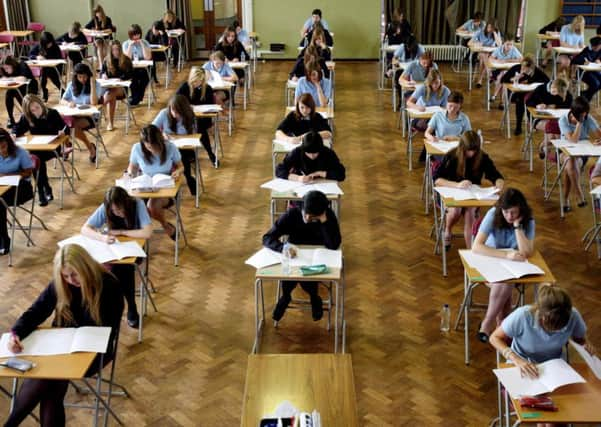Improvements to secondary education in Hull must happen faster, Ofsted rules


Despite around £400m being spent on new schools Hull City Council’s Building Schools for the Future programme since 2010, Ofsted found that over a third of secondary-aged pupils attend schools or academies that are “not yet good”.
The proportion of young people aged over 16 gaining Level 3 qualifications is the second lowest of all local authorities nationally and by the age of 18, the proportion who remain in education, employment or training is below average.
Advertisement
Hide AdAdvertisement
Hide AdThe Council is trying to address the issues, inspectors agreed, with its director for children, young people and family services, Mil Vasic, praised for having “made it his quest to raise everyone’s expectations and to drive improvements in pupils’ outcomes across the city” since his appointment in spring 2014.
Nevertheless, weaknesses remain, Ofsted said. In a letter to the Council, the inspectorate said more robust strategies are needed for reporting underachievement, setting goals for improvement and holding schools and local authority members to account for the rate of progress.
For example, the Council fails to ensure that all serious concerns about academies are brought formally to the attention of the Regional Schools Commissioner, and a recent report to councillors on pupil performance “focussed too much on small improvements and did not identify robustly enough the significant weaknesses in school performance or the actions that are needed to improve matters”.
The outcome of Ofsted’s inspection of the Council’s support for school improvement, which took place between December 7-11 was published today.
Advertisement
Hide AdAdvertisement
Hide AdInspector Margaret Farrow, writes: “Council leaders and elected members, over a significant period of time, have been too slow to recognise their responsibility in leading and driving the ambition for school improvement. As a result, the pace of improvement has not been fast enough, particularly in secondary education, the post-16 sector and for the most-able pupils across all key stages.
“For too long, pupils’ outcomes have languished in the bottom ten per cent of all local authorities nationally. This is not the case in primary schools at Key Stage 2, where the proportion of pupils gaining Level 4 in reading, writing and mathematics combined has improved rapidly, moving from below average in 2014 to slightly above in 2015. However, the proportion of Year 11 pupils gaining five good GCSEs, including English and mathematics, remains stubbornly low.”
The Council said an action plan was being drawn up to tackle key areas for improvement.
Mr Vasic said: “We accept the inspector’s findings, which confirmed our own self-evaluation. We are, of course, fully committed to addressing the areas for improvement and the work has already started.”
Advertisement
Hide AdAdvertisement
Hide AdThe Council will raise standards by working with families, schools, colleges and academies, Mr Vasic said, adding that raising the aspirations of young people and the value placed on a good education was a key priority too.
“I am confident that if we all work together and focus on what matters - quality leadership and teaching in schools coupled with family support for pupils - we can drive forward educational attainment, skills and employability for our children and young people, to where it needs to be,” he said.